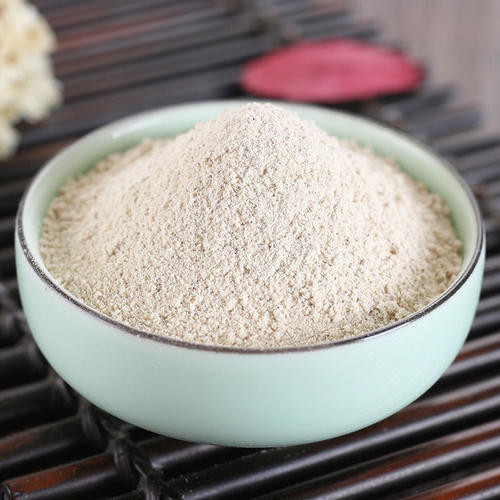Product Overview
Parts used: Dried sclerotium
TCM category: Herbs that drain Dampness
TCM nature: Neutral
TCM taste(s): Sweet
Meridian affinity: Bladder Kidney
Scientific name: Polyporus umbellatus
Other names: Lumpy bracket, Umbrella polypore
Use of polyporus (Zhu Ling) in TCM
Please note that you should never self-prescribe TCM ingredients. A TCM ingredient is almost never eaten on its own but as part of a formula containing several ingredients that act together. Please consult a professional TCM practitionner, they will be best able to guide you.
Preparation: Soak in water, wash, steam slightly, remove the outside skin, cut into pieces or thick slices, dry.
Dosage: 6 - 15 grams
Main actions according to TCM*: Drains Dampness and encourages urination
Primary conditions or symptoms for which polyporus may be prescribed by TCM doctors*: Oliguria Edema Diarrhea Dysuria Leukorrhalgia
Contraindications*: This herb should not be used when there is an absence of Dampness.
Common TCM formulas in which polyporus are used*:
For Dampness and edema combine polyporus with poria-cocos mushrooms (Fu Ling), water plantain (Ze Xie), atractylodes rhizomes (Bai Shu) and cinnamon twigs (Gui Zhi).
For diarrhea, edema, scanty urine and painful urination combine polyporus with poria-cocos mushrooms (Fu Ling).
For scanty urination and tendency to edema combine polyporus with adzuki beans (Chi Xiao Dou), water plantain (Ze Xie) and poria-cocos mushrooms (Fu Ling).
Key TCM concepts behind polyporus (Zhu Ling)'s properties
In Traditional Chinese Medicine (TCM), polyporus are plants that belong to the 'Herbs that drain Dampness' category. These herbs are typically diuretics, meaning that they promotes the increased production of urine in order to remove Damp that has accumulated in the body. According to TCM Damp accumulates first in the lower limbs, causing edema and impaired movement. From there, if unchecked, it can move upward and impair digestion and eventually the respiratory system.
Furthermore polyporus are plants that are Neutral in nature. This means that polyporus typically don't affect the balance in your body. Balance between Yin and Yang is a key health concept in TCM. Eating too many "Hot" (Yang) ingredients can lead to an imbalance whereby one has a Yang excess. The inverse is true as well: too many "Cold" (Yin) ingredients can lead to a Yin excess. The Neutral nature of polyporus means that you don't have to worry about that!
Polyporus also taste Sweet. The so-called "five elements" theory in Chinese Medicine states that the taste of TCM ingredients is a key determinant of their action in the body. Sweet ingredients like polyporus tend to slow down acute reactions and detoxify the body. They also have a tonic effect because they replenish Qi and Blood.
The tastes of ingredients in TCM also determine what organs and meridians they target. As such polyporus are thought to target the Bladder and the Kidney. In TCM the impure water collected by the Kidneys that cannot be used by the body is sent to the Bladder for storage and excretion as urine. The Kidneys do not only regulate the urinary system but also play a key role in the reproductive system and the growth and aging process of the body.
Use of polyporus (Zhu Ling) as food
Polyporus are also eaten as food.






